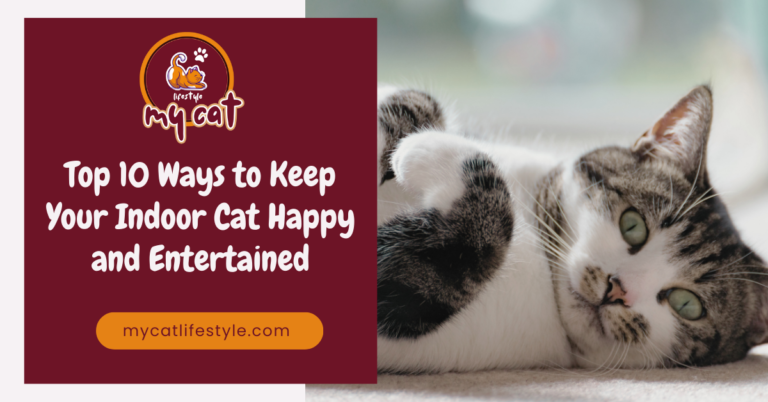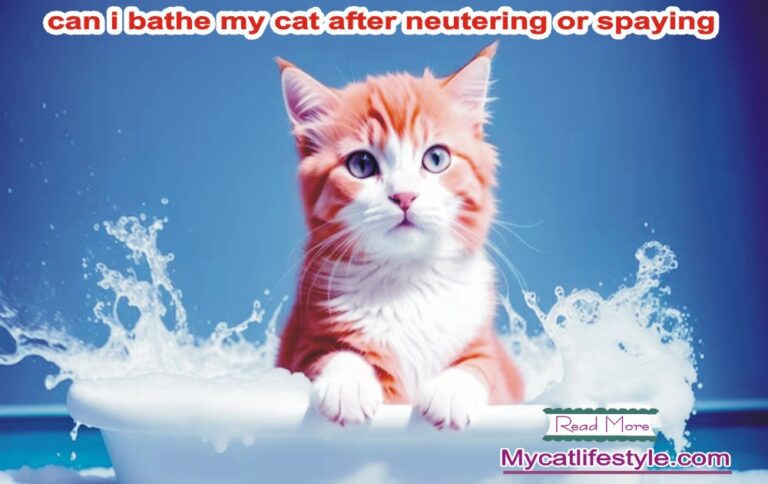Are Cats Sad When Their Kittens Leave? Emotional Impact on Mother Cats
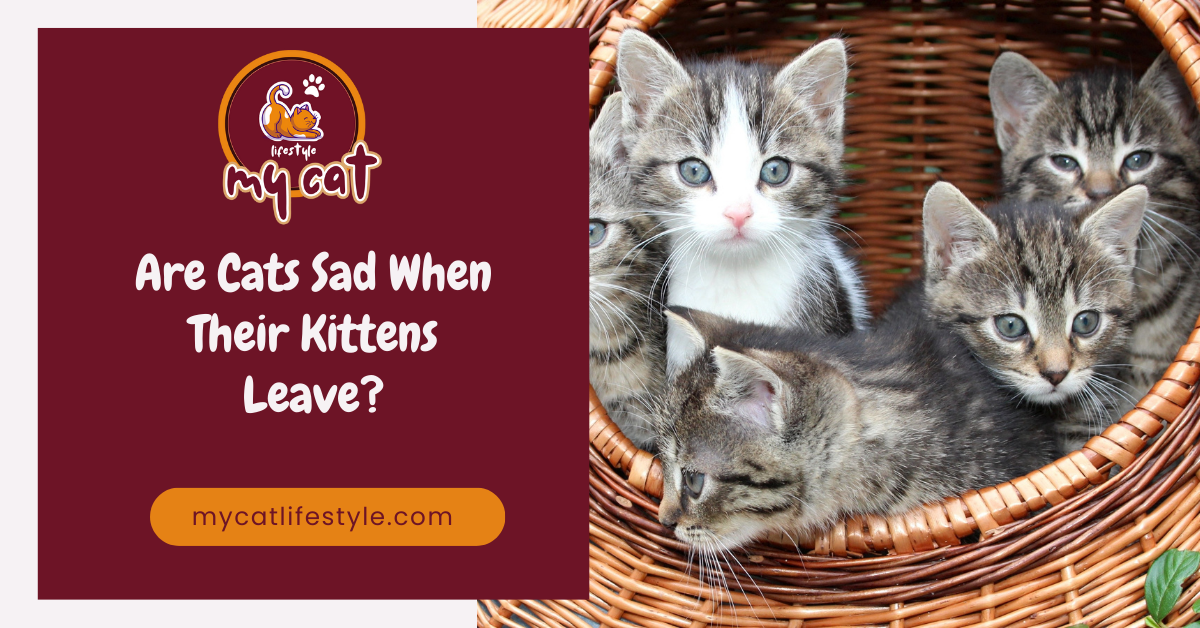
It’s quite common for cat owners to observe and ponder over the emotional well-being of their pets, particularly regarding the connection between a mother cat and her kittens. Many people wonder if mother cats experience sadness when their kittens depart.
Having a cat that just welcomed kittens is a delightful and enchanting experience. You find joy in interacting with the little ones and observing their interactions with their mother. Observing how cats nurture their kittens can even offer insights into the upbringing of young ones across species.
Nevertheless, you might ponder whether cats experience a sense of loss when their kittens depart. Do they question the whereabouts of their kittens or worry about their well-being? Moreover, is it considered inappropriate for Re-home kittens? This curiosity stems from watching the mother’s close interactions and nurturing behaviors throughout the kittens’ early lives.

Are cats sad when their kittens leave?
When handled properly, a mother cat typically adjusts well to her kittens leaving. She might feel their absence for a day or two but soon returns to her usual routines.
Cats groom their kittens for independence, seeing their departure as a badge of successful parenting; they’ve prepared them to venture into the world independently. Isn’t it fascinating what we can learn from them?
Yet, things sometimes follow a different pattern. Sometimes, a mother cat may feel sorrowful after her kittens leave. Fortunately, there are ways you can support your cat through this transition period.
Species Survival
Cats don’t usually long for their kittens due to their natural life cycle. The cycle is straightforward: a cat becomes pregnant, has kittens, and once the kittens can fend for themselves, they leave.
This makes room for the next litter, continuing the cycle. Overstaying kittens could hinder the mother’s ability to conceive again.
While some cats thrive in social groups, others prefer solitude and may not welcome grown kittens. Additionally, pushing kittens away at maturity prevents inappropriate breeding, as kittens can reproduce as early as 4 to 6 months old, often indiscriminately, even with kin.
Time Frame
Ensuring kittens leave at the right time is crucial to prevent maternal depression. Weaning should start around 4 weeks of age, with complete weaning by 8 to 12 weeks.
During this period, the mother reduces the nursing frequency as kittens start consuming solid food, aiding in the gradual separation.
The mother also teaches her kitten essential survival skills like hunting and social behavior. As the kittens grow, she naturally spends less time with them, mirroring the weaning process by withdrawing her attention incrementally.
It’s important to remember that removing kittens too early—before they’re fully weaned—can distress the mother, who instinctively knows when her kittens are ready to be independent. Such early separation can be detrimental to both kittens and mothers.
Cats Have Emotions — They Feel Just Like We Do
First and foremost, it’s essential to recognize that cats, like other animals, experience various emotions. They can feel happiness, fear, anger, and even sadness. Although the way cats express and process these emotions may differ from humans, we can infer their feelings based on their behaviors and our understanding of cat psychology.
The bond between a mother cat and her kittens is deeply ingrained, driven by instinct and survival needs. In the early weeks of their lives, the mother cat dedicates herself to nurturing her kittens—feeding, grooming, and imparting crucial life skills. This intense bond is vital for the kittens’ development and growth.
As kittens mature, they naturally explore more and assert their independence. The mother cat facilitates this transition by spending less time with her kittens, encouraging them to fend for themselves. This separation process is standard for kitten development, preparing them for life as autonomous adults.
When it’s time for kittens to leave—whether they are adopted into new homes or the mother can no longer care for them—it’s plausible that the mother may feel a sense of sadness or loss. Observations of mother cats searching or calling for their kittens post-separation suggest they may experience emotional distress.
However, cats are remarkably resilient. Although a mother cat might initially feel sorrow or confusion without her kittens, she quickly adapts to her new situation and resumes her normal activities.
It’s also important to note that reactions to kitten separation can vary from one mother cat to another, influenced by her personality, past experiences, and the specific circumstances of the kittens’ departure. Like human parents, some cats may feel a more profound loss when their offspring leave, underscoring the diversity of emotional responses among individual animals.
What to Expect When Kittens Leave
Most cats adapt fairly well when their first few kittens leave the nest. However, it can be slightly more challenging for them as the last one or two kittens depart. Even though the kittens are weaned, it’s common for the mother to feel a tinge of sadness for a day or two.
- During this period, she may express her longing by meowing and hoping to hear a reply from her kittens. She might wander around the house in search of them.
- It’s not unusual for some cats to vocalize more frequently by crying or meowing. In their search for comfort, some might even adopt a stuffed animal or another pet as their new “baby.”
If a mother cat struggles significantly with her kittens leaving, she might display signs of depression. This can include eating less, sleeping more, pacing, or continually searching for her kittens. Such behaviour is generally rare if the kittens were at least 10 weeks old before leaving home, as this gives adequate time for both physical and emotional readiness for separation.
This behavior reflects the depth of the maternal bond in cats and underscores the importance of a thoughtful and sensitive approach to re homing kittens. If there’s anything more you’d like to know or another aspect you need help with, just let me know!
Should I Keep A Kitten?
Some owners choose to keep one or more kittens for various reasons. They might wish to preserve the mother’s bloodline for breeding or hold onto a kitten for sentimental reasons. Others keep a kitten to provide companionship for the mother cat or to prevent her from losing all her babies at once.
While it’s unnecessary, having a kitten stay can comfort the mother, maintaining a strong bond and companionship as the kitten grows.
Helping the Mother Through the Process
Experts often recommend staggering the departure of kittens, allowing one or two to leave at a time. This approach helps the mother adjust gradually rather than facing the sudden loss of all her kittens simultaneously.
There’s some debate about whether the mother should be present during the kittens’ departure. Some owners prefer to quietly rehome the kittens to minimize stress on the mother, while others let the mother witness the handover to the new owners, providing a chance for closure.
- After the kittens have left, there are several ways to support the mother. Introducing new toys can distract her and help mitigate the sense of loss.
- These toys won’t replace her kittens but can offer mental stimulation and comfort. Treats and extra attention, including more cuddle time, can also help her adjust to her normal routine.
It’s Not Always Empty Nest Syndrome
When your cat begins acting out—being vocal, seeming anxious, or showing disinterest in food after her kittens have left—it’s crucial to discern the cause. It’s possible she’s not grieving but is instead in heat.
- Cats can go into heat shortly after their kittens are weaned, displaying behaviors that might easily be mistaken for signs of distress over their missing kittens.
- In interpreting these behaviors, it’s important to remember that while humans might project their emotional responses onto their pets, animals may experience and express their feelings differently.
Our challenge is interpreting what our pets are trying to communicate, considering that our interpretations might only be sometimes accurate.
Do mother cats remember their kittens?
Mother cats dedicate much time and energy to nurturing their kittens. Considering this investment, one might assume they would retain memories of their kittens long after they’re gone.
It Makes Scents
Interestingly, mother cats do not remember their kittens once separated. If they encounter them later as adults, recognition is unlikely.
Cats primarily recognize each other through scent, the strongest cue for their memory. As kittens move away and grow, their scents change, complicating recognition for the mother cat.Similarly, kittens do not have a well-developed memory in their early stages.
They retain some memories, but many details, including those of their mother, fade over time. Once separated, it’s unlikely that a mother and her kitten will remember each other.
What if They Aren’t Separated?
If a mother and her kitten remain together, they seem to remember each other. However, their relationship evolves as the kitten matures.
They interact as typical adult cats rather than maintaining a mother-child dynamic, though they often continue to share a close and amicable bond.
Is it cruel to separate kittens from their mother?
Separating kittens from their mother prematurely is indeed harsh and can lead to significant distress for the mother, especially if the separation occurs before the kittens are weaned.
- However, once the kittens reach an appropriate age, typically between 8-12 weeks, the mother is better prepared to part with them.
- While it may appear harsh, and the mother might exhibit searching behaviors, this separation mimics natural processes.
- In the wild, kittens naturally venture out independently once they are capable.
- Thus, separating a mother from her mature kittens aligns with their natural developmental trajectory.
How Long Does it Take for a Mother Cat to Forget Her Kittens?
While it might seem like a mother cat would be distressed by her kittens being taken away, it’s essential to understand that cats do not process thoughts and emotions as humans do. Naturally, a mother cat starts to wean her kittens around four to five weeks old, with complete weaning typically achieved by 10 to 12 weeks. The aim for the mother is to prepare her kittens for independence, at which point her emotional attachment to them begins to diminish.
- It’s not uncommon for a mother cat to start feeling uncomfortable with the presence of her grown kittens, sometimes even growling at them if they linger too long.
- After the kittens are old enough to be adopted into new homes at around 12 weeks, you might observe the mother cat exhibiting ‘seeking’ behaviors, such as meowing or looking around for her missing kittens. Generally, these behaviors may last a few days, after which she returns to her normal routine.
- If kittens are taken away before they are 10 weeks old and before they are fully weaned, the mother may exhibit signs of seeking for a longer period.
- However, this is usually brief as her instincts drive her to detach from her litter eventually. Unlike humans, cats do not ‘remember’ or ‘grieve’ for their kittens in the same emotional capacity.
- Sometimes, a mother cat may reject her litter from the start, which can occur if she detects that a kitten is unwell, suffering from conditions like painful mastitis or life-threatening eclampsia, or simply if the litter is too large to manage.
- First-time mother cats might also reject their kittens due to stress and anxiety, although this behaviour is often rooted in their instinctual reactions to challenging circumstances.
How long do kittens stay with their mother in the wild?
Life unfolds quite differently for feral cats compared to domesticated kittens. Like their domestic counterparts, feral cats are fully dedicated to their kittens for the initial two weeks, venturing away only as needed for survival.
Around the four-week mark, the mother cat begins the weaning process. By 5-6 weeks, the kittens start consuming solid food and learning to hunt. Unlike some perceptions, mother cats do not abandon their kittens; they leave to hunt and then return to the nest to care for them. She encourages the kittens to venture out and hunt independently as they grow.
Eventually, the kittens cease returning to their mother’s den and establish their territories. In some instances, they reside with their mother within a social group. While each cat claims a distinct territory, they often remain close by and may even share hunting grounds.
The scenario is quite different for large felines such as lions. These big cats develop more slowly. Lions start eating meat at around three months and are fully weaned by six to seven months. It takes nearly another year, around 16 months, for them to become capable of surviving independently.
They typically stay near their mother until they are about two years old. At this point, they either leave or become integrated pride members, expected to participate in communal hunting efforts.
Conclusion
While it’s impossible to know exactly how a mother cat feels when her kittens depart, it’s reasonable to surmise that she might experience a sense of sadness or loss. However, cats are notably resilient creatures, and most mothers adapt to the changes and resume their regular routines relatively quickly.
For those of us who adore cats, it’s crucial to recognize that our feline friends experience emotions and might require our support during transition or loss. By staying attuned to the emotional needs of our feline companions, we can help ensure their lives are happy, healthy, and enriched with love and companionship.
Related Post:
- Why does my cat hate her kittens?
- My Cat Stopped Purring When I Got A New Kitten – Exploring
- Why Do Cats Move Their Kittens?
- My Cat Ate a Rubber Band: What Should I Do? (Vet Answer)
- Why Does My Cat Blink One Eye? Exploring the Reasons Behind This Feline Behavior
- How do you stop a cat from jumping on a TV stand?
- ats Shake Their Heads When Eating?

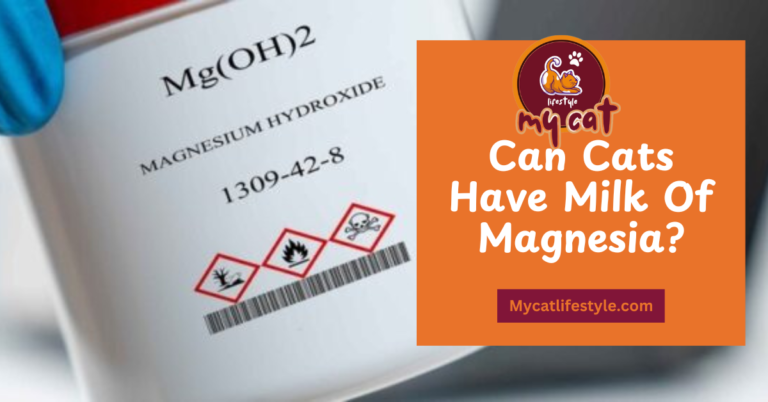
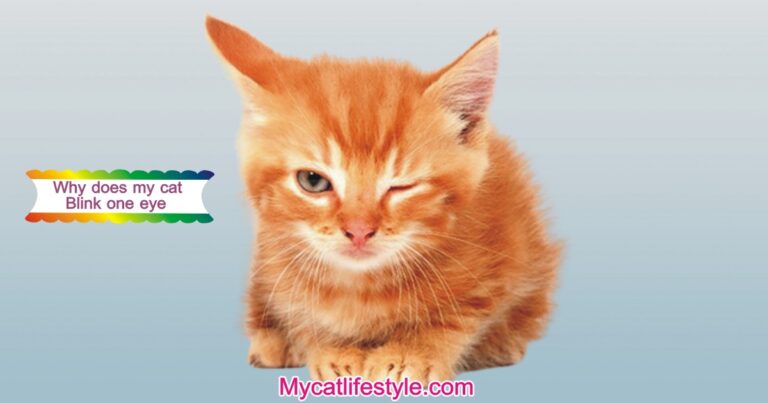
![Can I Spray Perfume on My Cat? [What Cat Owners Need To Know]](https://mycatlifestyle.com/wp-content/uploads/2023/10/Mycat-lifestyle.com-4-768x403.png)
